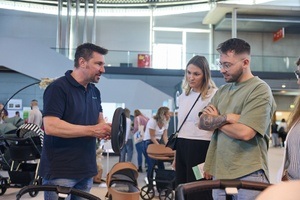Pippis Papa - Und eine wirklich wahre Geschichte aus dem Pazifik
In the organizer's words:
The stories about Pippi Longstocking and her father Efraim, who rules over Taka-Tuka Land as king, are among the most popular works of European children's literature of the 20th century. But was there really a Swedish "South Sea King"?
The biography of the Swede Carl Pettersson (1875-1937) shows astonishing parallels to the content of the Pippi books. Pettersson worked for the German New Guinea Company in the Pacific, in which Hamburg companies were also involved. After a shipwreck, he settled on the Tabar Islands, established coconut plantations and started a family with his Pacific wife Singdo. Their children experienced colonial upheavals and educational methods in the environment of missionary schools.
Using their lives as examples, the exhibition tells the story of German colonialism in the Pacific in a playful and interactive way for children and families. It presents the colonial plantation system and trade relations between the islands of the Bismarck Archipelago and the city of Hamburg. The aim is to encourage reflection on how colonial world views are dealt with in children's literature today.
Supported by the Ministry of Culture and Media of the Free and Hanseatic City of Hamburg, the Hubertus Wald Foundation, the ZEIT Bucerius Foundation, the Hapag-Lloyd Foundation and the Claussen-Simon Foundation.
This content has been machine translated.Price information:
Museum admission (under 18s free) | admission € 9.50 | reduced admission € 5.00











